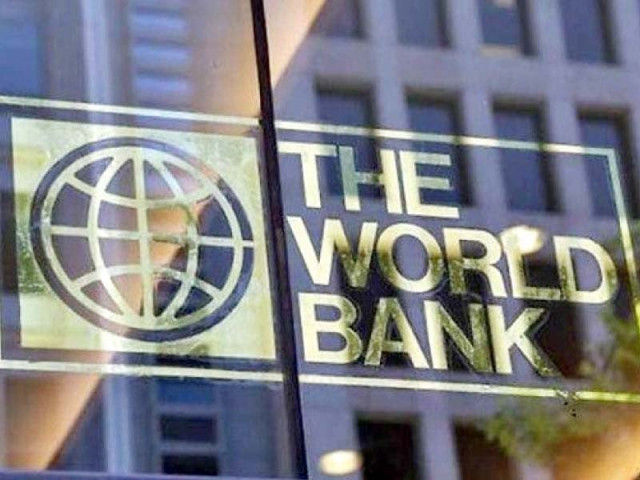Pakistan may miss IMF targets
Global lenders not in the mood to give substantial concessions on agreed conditions

The World Bank has estimated major slippages in the targets of fiscal deficit, debt and external sector agreed by Pakistan with the International Monetary Fund (IMF), emphasising that Islamabad should not abandon the prudent path despite worst floods since independence.
The biannual Pakistan Economic Update of the World Bank suggested that the international lenders were not in a mood to give any substantial concessions to Islamabad on the agreed conditions, particularly the increase in electricity prices.
The report showed that the primary budget balance would be negative by 3% of gross domestic product (GDP) against the IMF’s target of 0.2% surplus, marking the biggest slippage. The debt-to-GDP ratio will slip to 71.7% by the end of current fiscal year against the earlier IMF forecast of 68.2%.
Importantly, the current account deficit is projected at 4.3% of GDP, or around $19 billion, by the World Bank, against the IMF’s earlier estimate of 2.5%, increasing the country’s foreign loan requirement.
IMF programme targets could undergo major changes during the upcoming visit of a fund’s mission, tentatively planned from October 26 to November 4.
Inflation would spike while the fiscal situation would worsen, revenues would fall and tax base would shrink, said Derek Chen, senior economist at the World Bank. “We expect fiscal policy to remain expansionary,” said Chen.
Projections have been made on the assumption that Pakistan will stay in the IMF programme, according to the senior economist.
In case, Pakistan’s IMF programme again goes off track, the numbers can further deteriorate due to the fiscal and monetary indiscipline.
The World Bank released the report the day Moody’s credit rating agency jolted Pakistan by giving it junk rating of Caa1, which is slightly above default rating.
Caa1 rating means that Pakistan’s debt is “judged to be of poor standing and is subject to very high credit risk”.
Read 'IMF should issue new reserves to help countries tackle crises'
The Ministry of Finance has strongly contested the rating action, saying it has been carried out unilaterally without prior consultations and meetings with teams of the Ministry of Finance and the State Bank of Pakistan.
Moody’s “worsening near- and medium-term economic outlook” does not depict the correct picture due to gaps in information available with the rating agency and its use of estimations is not grounded in fundamentals, it said.
The World Bank said that Pakistan’s economic growth rate may remain around 2%, down from the target of 5%.
The bank said that the agriculture sector would contract by 1.1% this year against the growth target of 3.9%. Industrial sector may grow by 2.3% but down from the target of 5.9%. Services sector is projected to grow by 3.2% against the target of 5.1%.
Pakistan’s economic outlook faces substantial risks from further potential increases in world energy and food prices due to the ongoing Russia-Ukraine conflict and slower global growth due to rising inflation, said the lender.
To manage short-term risks, the government needs to strike a delicate balance between progressing on the required fiscal consolidation and meeting relief and recovery needs, it added.
“Because of the catastrophic floods, there is more urgency to implement reforms for creating fiscal space for reconstruction,” said Najy Benhassine, Country Director of the World Bank.
The bank said that high domestic and external financing needs, ongoing political uncertainties, upcoming elections, and maintaining market confidence would be critical.
“It is very important for the government to show to markets that it has an economic recovery plan,” said Tobias Akhtar Haque, World Bank Lead Economist, adding that it was absolutely critical that the IMF programme remained on track.
Despite the challenging situation, the bank said that it would be critical to maintain a tight monetary policy stance, pursue fiscal consolidation to the extent possible, including through tight targeting and prioritisation of any new expenditures, and proceed with planned structural reforms, including in the energy sector.
Read more IMF says policy commitments made by Pakistan continue to apply
But taking these measures will mean that Pakistan’s economic growth will further slow down, unemployment, poverty and inflation will further go up.
The bank said that with the WPI inflation exceeding the CPI inflation by around 50%, the monthly and yearly CPI inflation has yet to peak.
“Overall, due to higher domestic energy prices, flood disruptions and the weaker rupee, the CPI inflation is projected to rise to an average of 23% in fiscal year 2023, double than the target of 11.5%.”
But it said that implementation of government plans for fiscal consolidation was likely to become more challenging, given extensive relief and recovery spending needs, and slower growth of tax bases due to weaker economic activity.
Published in The Express Tribune, October 7th, 2022.
Like Business on Facebook, follow @TribuneBiz on Twitter to stay informed and join in the conversation.


















COMMENTS
Comments are moderated and generally will be posted if they are on-topic and not abusive.
For more information, please see our Comments FAQ